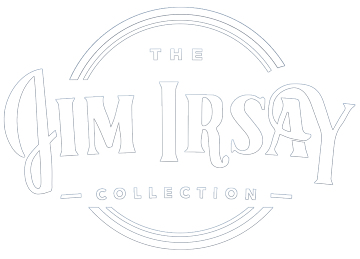Letter from Allen Ginsberg to Stanley Kunitz
The letter reads: “Dear Stanley: Here is a copy of Howl. Is it carried anywhere in NYC Village area did you notice? Please Review it somewhere chic & straight. Or, who else do you think could would or should review it? I’ll send copies to whomever yu [sic] think might be interested in the prosody or content. Back in S.F., still on ship, one more trip, then head to Mexico & then East for Xmas in Europe. Kerouac apparently finally being picked up in toto by Grove, at least strong signs of such purpose. Saw Stern & London today, heard of this here commercial type sounding venture for de luxe etc. Well, I thought, do justice to Philip Walen perhaps if $$ requirements not prohibitive. As ever, Allen” After his signature Ginsberg includes a postscript noting he sent a copy to Kiser (perhaps Carolyn Kizer?), and notes: “Duncan is here, and Kerouac and Gregory Corso, another fine primitive type poet. Who’s in NYC.”
"Howl" was seen as a revolutionary writing at its time of publishing, and helped usher in a new era of self-expression where no subject was taboo. Along with Jack Kerouac's On the Road and William S. Burroughs' Naked Lunch, "Howl" is often seen as a foundational piece of the Beat Generation.
Allen Ginsberg (1926-1997) was an American poet and author whose 1956 poem "Howl" became a cornerstone work in literary movement known as the Beat Generation. Ginsberg was studying at Columbia University in New York City when he met Lucien Carr, William S. Burroughs, and Jack Kerouac - forming the early foundation of Beat Generation writers.
Ginsberg moved to San Francisco in the 1950s, and there he began writing "Howl." Ginsberg read "Howl" at The Six Gallery in San Francisco on October 7, 1955, in what became a pivotal moment in the Beat movement. Ginsberg's powerful reading of an early draft of "Howl" was encouraged by the audience, which included Jack Kerouac, Neal Cassady, and Lawrence Ferlinghetti. Ferlinghetti had founded City Lights Booksellers in 1953, and offered to publish the poem. In 1956, Howl and Other Poems was published by the City Lights and was immediately met with controversy due to its themes of sexuality and drug use. Ferlinghetti and City Lights shop manager Shig Murao were arrested on obscenity charges for selling and publishing the book. Both were acquitted, but the trail brought national attention to Ginsberg and his work.
Ginsberg continued to write and publish poetry throughout the rest of his life. He was social and political activist, protesting against the Vietnam War and fighting for free speech and gay rights.
Stanley Kunitz (1905-2006) was an American poet who served as the United States Poet Laureate twice, in 1974 and 2000. Kunitz wrote and taught poetry at the college level throughout his life, and served as the longtime editor of the Wilson Library Bulletin.























